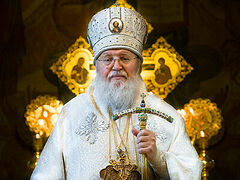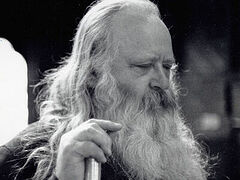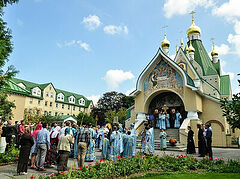Source: ROCOR Studies
June 20, 2022
Interview with Protodeacon Andrei Psarev dedicated to the 15th anniversary of the restoration of Eucharistic Communion within the Russian Orthodox Church.
Father Andrei, very briefly, especially for our readers, tell us how it came about that the Russian Church Abroad was formed? Why was it impossible to maintain unity with the Moscow Patriarchate in the 1920s?
The 20th century brought unprecedented experience for the entire Russian Church. This began to take shape amidst the division of the front lines of the Russian Civil War, and was different again after the Civil War was over. Patriarch St. Tikhon and his successors, Metropolitan St. Peter and Metropolitan Sergius, tried to secure legal status for the Russian Church from the Soviet government. However, the Soviet government long took advantage of the Church’s lack of any such status, as a means of influencing the Church, and granted it only in 1990. When I studied church-historical documents from the 1920s, I noticed that bishops in Russia who protested against Metropolitan Sergius’ administrative course mostly avoided criticizing the Soviet regime. For the refugee bishops, the question of the “godless regime” was just as important as the question of preserving conciliarity [sobornost]. At the same time, there were no channels for confidential communication between hierarchs in Russia and abroad. In 1927, the ROCOR Council of Bishops decreed:
“In order to relieve our hierarchy in Russia from responsibility for the refusal of the foreign part of our Church to recognize the Soviet regime, until normal relations with Russia are restored and until our Church is liberated from the persecution of the godless Soviet regime, the foreign part of our Church must govern itself, according to the holy canons and the resolutions of the Holy Council of the All-Russian Local Orthodox Church of 1917–18, and the resolution of His Holiness Patriarch Tikhon, the Holy Synod and the Supreme Church Council of November 7/20, 1920 [on provisional autonomy – Protodeacon A. P.], with the assistance of the Synod of Bishops and the Council of Bishops under the presidency of Metropolitan Anthony of Kyiv.”
... Read the rest at ROCOR Studies.
Follow OrthoChristian on Twitter, Vkontakte, Telegram, WhatsApp, MeWe, and Gab!




